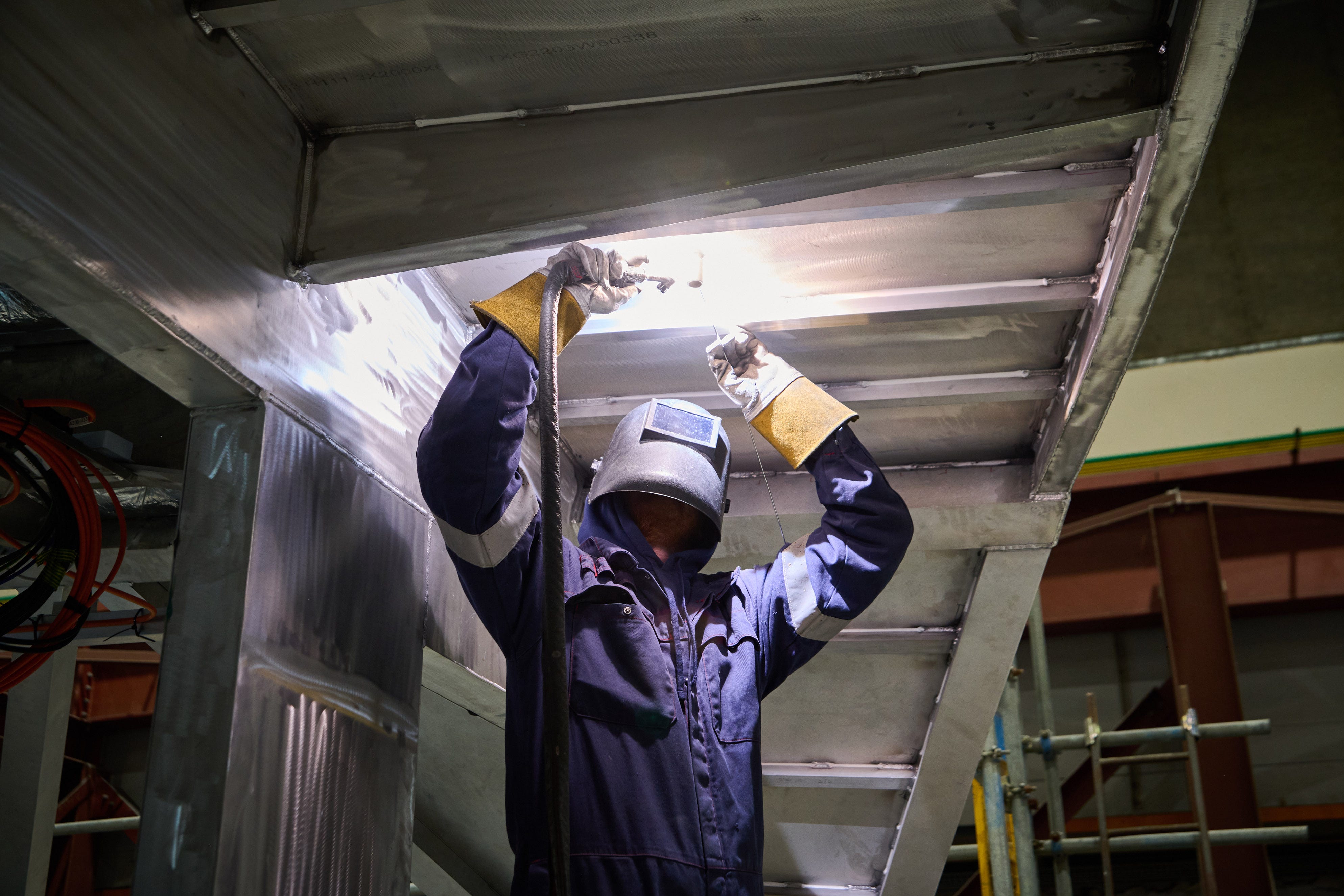Labour’s British building boom not possible, construction authorities say
Asked Labour’s vow to build 1.5 million homes is achievable, Barratt Redrow chief executive David Thomas said: “The short answer is no.”

The head of the largest housebuilding firm in the United Kingdom has said Labour’s vow to build 1.5 million homes during this parliament is not possible due to a severe skills shortage.
Asked if there were enough workers to build the extra homes promised by the Prime Minister and his deputy Angela Rayner, Barratt Redrow chief executive David Thomas told the BBC: “The short answer is no.”
He added that Sir Keir’s government would have to “revolutionise the market, revolutionise planning, revolutionise methods of production” to make reaching their homebuilding target achievable.
“They’re challenging targets, I think we have to recognise that this is a national crisis,” Mr Thomas said.
The Home Builders Federation (HBF) echoed Mr Thomas’ sentiments, saying skills shortages, an ageing workforce and Brexit are among the issues.
An HBF statement to the BBC said the UK “does not have a sufficient talent pipeline” of builders to meet Labour’s goal, citing recruitment constraints with poor perception and lack of training within schools, not enough apprenticeships and the costs of taking on apprentices.
The industry body added the sector has not “attracted” enough recruits in recent years, saying a quarter of tradesmen are aged over 50.
The concerns from within the construction industry have dampened Sir Keir Starmer’s pledge to reach construction targets after he said on December 5 his government would “absolutely” push development through despite environmental red tape.
Of course we want to get the balance right with nature and the environment, but if it comes to a human being wanting to have a house for them and their family, that has to be the top priority
Sir Keir said he wanted to “get the balance right with nature and the environment” but that “a human being wanting to have a house” has to be the top priority.
As well as the pledge to build 1.5 million homes, the Labour government intends to make decisions on 150 major infrastructure projects during this parliament.
The updated national planning policy framework (NPPF) commits to a “brownfield first” strategy, with disused sites that have already been developed in the past prioritised for new buildings.
The default answer when a developer seeks to build on brownfield sites will be “yes”, but the Government says these sites will not be enough for the number of homes needed.
Councils will be ordered to review their greenbelt boundaries to meet targets by identifying lower quality “grey belt” land that could be built on.
The framework defines the grey belt for the first time as green belt land that “does not strongly contribute to green belt purposes”.
Those purposes include limiting urban sprawl, stopping neighbouring towns merging into each other and preserving the special character of historic towns.
Safeguarding the countryside from encroachment and assisting in urban regeneration are no longer included as green belt purposes.
“For years, we have had not enough houses being built. That means that individuals and families don’t have the security that they want,” Sir Keir said during a visit to a construction site in Cambridge.
“We are determined to break through that, to do what’s necessary.
“Of course we want to get the balance right with nature and the environment, but if it comes to a human being wanting to have a house for them and their family, that has to be the top priority”.
More specific guidance on how local authorities can assess their green belt land is due to come in January.
The Government announced £100 million of additional cash for councils, along with 300 additional planning officers, to speed up decision-making processes.
The extra money can be used to hire more staff or consultants and to carry out technical studies and site assessments.
The NPPF reforms are just one element of the Government’s plans to rewrite the planning rules to make it easier to build homes and major infrastructure projects.
The forthcoming Planning and Infrastructure Bill is intended to rip up red tape and make it faster for projects to be approved.
Bookmark popover
Removed from bookmarks